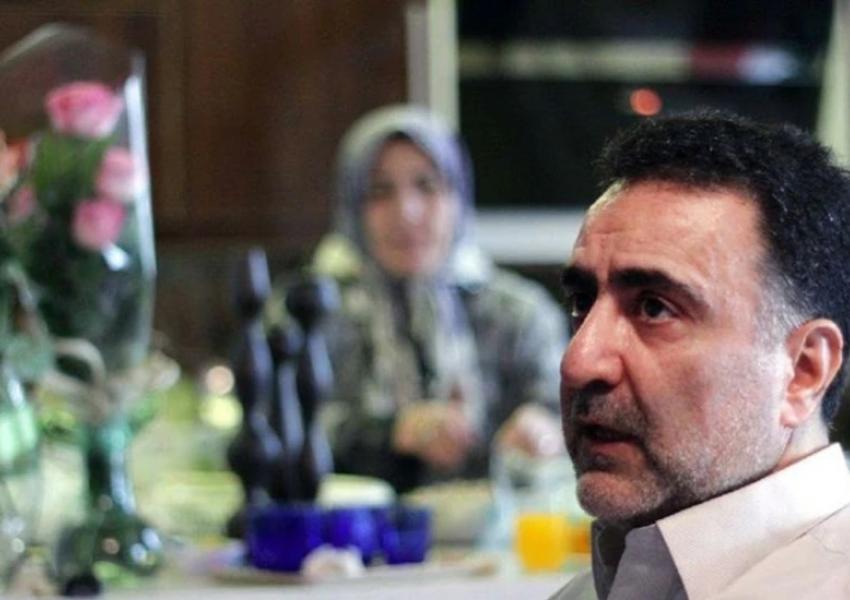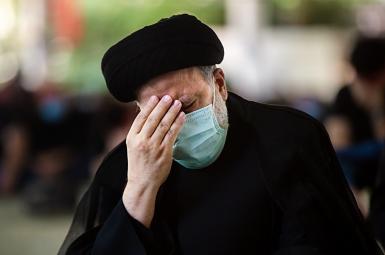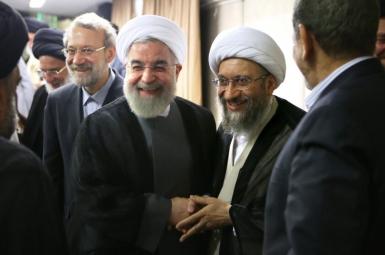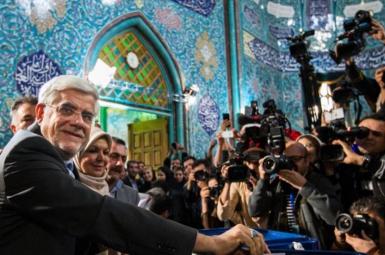
Reformist Calls Iran’s Presidential Election A Khamenei 'Appointment'
In a tweet Saturday Mostafa Tajzadeh, a reformist barred by the election watchdog the Guardian Council from Iran’s June 18 presidential elections, called the process one of "appointment by the Leader," Ali Khamenei.
Tajzadeh used the new hashtag #LeadersAppointments in response to warnings by the police chief Brigadier-General Hossein Ashtari not to encourage people to shun the election. "Why is the police chief worried about citizens not participating and threatening those who say #LeadersAppointments do not require our vote?" Tajzadeh asked.
Earlier on Saturday the police chief had declared that the police and judiciary would act against "anyone who infringes" Khamenei’s call on Iranians to vote. The Supreme Leader had "specified everyone's duty" in his Thursday [May 7] meeting with parliamentarians, Ashtari said.
In his Thursday speech, Khamenei defended the watchdog Guardian Council's decision not to disqualify three leading presidential hopefuls – vice-President Es’hagh Jahangiri, former parliamentary speaker Ali Larijani, and former principlist president Mahmoud Ahmadinejad.
Some analysts argue the list of seven qualified candidates guarantees the victory of Chief Justice Ebrahim Raeesi (Raisi), widely seen as favorite to succeed Khamenei in due course as leader. Pundits give little chance to the other six candidates –Amir Hossein Ghazizadeh Hashemi, a member of parliament; Central Bank Governor Abdolnasser Hemmati; Saeed Jalili, former top security official; former reformist vice-president Mohsen Mehralizadeh; former Revolutionary Guards commander Mohsen Rezaei (Rezaee); and Alireza Zakani, a former member of parliament.
The outspoken Tajzadeh said in another tweet, on May 28, with hashtags "I have a dream so I exist" and "We have dreams so we will persevere" that those who barred him from the elections would not take away his family’s dreams even if they put him in solitary confinement for another seven years, and enforced the five- and two-year suspended prison sentences on his wife Fakhrossadat Mohtashamipour and daughter Arefeh.
A Khamenei Twitter post suggesting Iran would prosper if the next president could solve the country's economic problems such as youth unemployment has received nearly 6,000 likes but many of the nearly 300 comments disagreed or expressed support for disqualified candidates such as Ahmadinejad.
"Your Highness, you have engineered the elections, destroyed the republic and mocked the constitution. Speaking of people's wish and will is more like a joke!" one twitteratus commented. "With all due respect… I want to declare that my priorities are [freedom of] the cyberspace and foreign policy," another opined, disagreeing with Khamenei's post that the economy rather than these issues were at the top of most Iranians’ list of priorities.
Iranians from across the political spectrum – from exiles who call for “regime change” to the Reformist Front and Ahmadinejad – have called for an election boycott or said they would not personally vote. Even official polls are highly indicative of the electorates' great reluctance to vote in an elections with a supposedly fixed outcome. A poll by the Iranian Students Polling Agency (ISPA) taken May 26-27 shows a drop of 7 percent in those saying they would “definitely vote” or "likely vote" in the June 18 presidential elections, down to 36 percent from 43 percent in a poll taken May 16-17.
The lowest ever turnout in Iran's presidential elections was 51 percent in 1993 when Akbar Hashemi Rafsanjani won his second term. The highest turnout was 85 percent in the 2009 election, when Ahmadinejad’s controversial victory led to street protests. In both the past two presidential elections, turnout has been above 70 percent.








